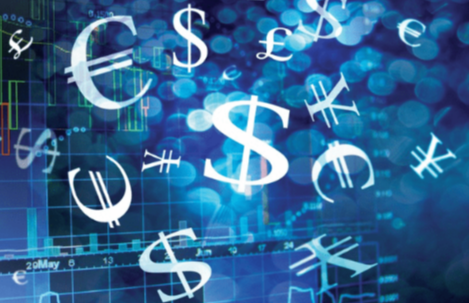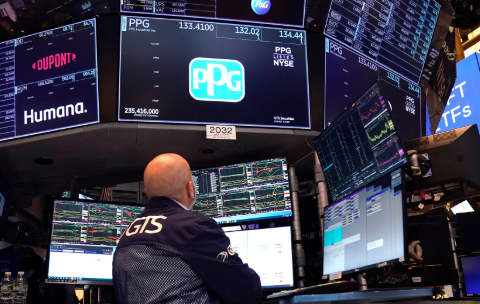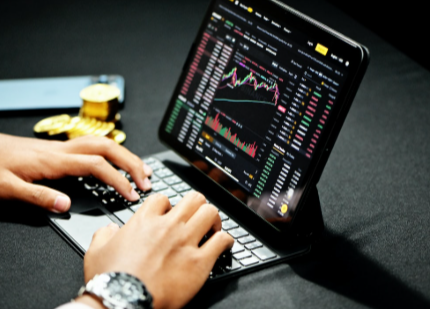The Impact of Market News on Trading Decisions
Market news serves as a crucial determinant in shaping trading decisions. It influences traders’ perceptions and can precipitate swift market movements. Reliable sources and aggregation tools are essential for filtering this information. However, emotional responses to news can lead to impulsive actions, complicating decision-making processes. Understanding the nuances of news sentiment is vital. As the market reacts to significant events, one must consider how these dynamics play out in real scenarios. What strategies can enhance trading outcomes?
Understanding Market News and Its Sources
Market news serves as a crucial catalyst in the decision-making processes of traders, influencing their strategies and actions within financial markets.
The reliability of market sources determines the news credibility that traders rely on, making discernment vital. In an era marked by information overload, effective news aggregation becomes essential for filtering pertinent data, allowing traders to focus on impactful reports.
Financial journalism plays a pivotal role by disseminating insights on economic indicators and market forecasts, helping traders assess potential market movements.
Analyst reports, grounded in thorough research, provide additional context, guiding traders in their evaluations.
As traders navigate the complexities of market news, their ability to synthesize information from diverse sources significantly shapes their trading decisions.
Read more: Trading Psychology: How Emotions Affect Your Success
The Psychological Influence of Market News
Market news significantly influences traders’ psychological states, often triggering emotional reactions that can lead to impulsive decisions.
These responses may be further compounded by cognitive biases, such as overconfidence or loss aversion, which distort rational assessment of information.
Understanding these psychological factors is essential for recognizing how sentiment can impact trading outcomes.
Emotional Reactions to News
How do emotional reactions shape trading decisions in response to market news?
Emotional responses, particularly news induced anxiety, significantly influence traders’ decision-making processes. When market news triggers anxiety, it can lead to impulsive actions rather than rational evaluations, undermining market response predictability.
Traders may overreact to negative news, resulting in excessive selling, while positive news can provoke unsubstantiated optimism, prompting hasty purchases. This emotional volatility often distorts the perceived value of assets, creating a disconnect from underlying fundamentals.
Recognizing the psychological impact of such emotional reactions is critical for traders aiming for objective analysis. Ultimately, understanding these emotional dynamics can empower traders to mitigate adverse effects and align their strategies more closely with market realities, fostering a sense of autonomy in their trading decisions.
Cognitive Bias in Trading
Emotional reactions to market news can frequently lead to cognitive biases that distort trading decisions. Traders often experience cognitive dissonance when faced with conflicting information, leading them to favor data that confirms their existing beliefs—known as confirmation bias.
This selective perception can exacerbate the overconfidence effect, where traders overestimate their knowledge and ability to predict market movements. Hindsight bias may cause them to believe past events were more predictable than they truly were, while the anchoring heuristic can trap them in their initial assessments.
Mental accounting influences how traders evaluate their investments, leading to the gambler’s fallacy, where they mistakenly believe past losses will be offset by future gains. Lastly, the availability heuristic can skew judgment based on recent news exposure.
Analyzing News Sentiment and Its Effects on Trading
News sentiment analysis plays a crucial role in understanding how market information influences trading behavior.
By systematically evaluating the tone and implications of news reports, traders can better gauge market reactions and adjust their strategies accordingly.
The relationship between sentiment and trading decisions highlights the importance of accurate interpretation in achieving favorable outcomes in the financial markets.
News Sentiment Analysis
Sentiment analysis has emerged as a critical tool in understanding how media influences trading behavior. By employing sophisticated news analytics, traders can quantify the emotional tone of market-related news through sentiment scoring.
This process involves parsing language to determine whether news articles convey positive, negative, or neutral sentiments, which can significantly impact market predictions. The structured analysis helps traders assess how news sentiment correlates with price movements, allowing for more informed decision-making.
Additionally, the integration of sentiment analysis into trading strategies can enhance the ability to anticipate market reactions, thus fostering a more liberated approach to trading.
Ultimately, understanding news sentiment equips traders with vital insights that can shape their trading strategies and outcomes.
Trading Behavior Influence
Market participants increasingly rely on the analysis of sentiment to inform their trading behavior. This reliance stems from the understanding that news sentiment significantly influences trading psychology, shaping traders’ perceptions and decisions amid market volatility.
Positive news can lead to bullish behavior, encouraging traders to buy, while negative sentiment often results in panic selling. As traders interpret news through their psychological lenses, their reactions can amplify market fluctuations, creating a feedback loop that drives volatility.
Moreover, the ability to gauge sentiment accurately can differentiate successful traders from those who succumb to emotional biases. Thus, understanding sentiment analysis not only aids in anticipating market movements but also enhances decision-making processes, empowering traders to navigate complex market dynamics with greater confidence.
The Role of Social Media in Market News Dissemination
Social media has emerged as a pivotal platform for the rapid dissemination of market news, significantly altering the landscape of financial information exchange. Through sophisticated social media algorithms, information spreads with unprecedented speed, allowing real-time updates that can shape market buzz almost instantly.
Influencers play a critical role in amplifying news virality, often driving audience engagement and sentiment spread, which can lead to substantial trading decisions. However, this environment also fosters information overload, where traders may struggle to discern credible sources amidst rumor propagation.
The credibility of platforms becomes essential, as the impact of misleading news can skew market perceptions and affect trading behaviors. Thus, social media’s dual nature as a facilitator of timely information and potential misinformation is vital in understanding its role in market news dissemination.
Timing and Its Impact on Trading Decisions
Although traders often make decisions based on a variety of factors, the timing of these decisions plays a crucial role in determining their success. Effective timing strategies can capitalize on market volatility, enabling traders to optimize entry and exit points.
Decisions made too early or too late may lead to missed opportunities or losses. Therefore, understanding market signals and trends is essential for traders aiming to navigate fluctuations effectively.
Additionally, the rapid dissemination of news can create volatile market conditions that impact timing; thus, a trader’s ability to act swiftly can be the distinguishing factor between profit and loss.
Ultimately, mastering timing in trading decisions empowers individuals to harness market dynamics for optimal outcomes.
Case Studies: Market Reactions to Major News Events
How do significant news events influence trading behavior?
Case studies reveal that market reactions can be profound and immediate, often dictating short-term price movements. For instance, during the 2008 financial crisis, news of major bank insolvencies triggered widespread panic, leading to substantial sell-offs across various sectors.
Conversely, positive news, such as the announcement of a groundbreaking technological innovation, can result in rapid price surges, as seen with companies like Apple following product launches.
These case studies illustrate that traders frequently react not only to the content of news but also to the perceived implications for market stability and future performance.
Understanding these dynamics is essential for comprehending the intricate relationship between market news and trading decisions.
Strategies for Navigating Market News Effectively
Navigating the complexities of market news requires a strategic approach that balances analysis with emotional discipline. Traders should develop comprehensive trading plans that incorporate specific guidelines for responding to news volatility. This includes setting predefined entry and exit points based on market conditions, thereby minimizing impulsive decisions driven by emotional reactions.
Furthermore, utilizing tools such as economic calendars and news aggregators can help traders stay informed without becoming overwhelmed. Implementing risk management strategies, such as stop-loss orders, allows traders to protect their investments during unpredictable market shifts.
Ultimately, a disciplined approach to interpreting market news can empower traders, fostering an environment where informed decisions are prioritized over knee-jerk reactions, thereby enhancing overall trading success.
Conclusion
In conclusion, the interplay between market news and trading decisions mirrors the age-old dance of fate and free will, reminiscent of Shakespearean themes. As traders navigate the tides of information, the ability to discern sentiment and manage emotional responses becomes paramount. By employing effective strategies and critically analyzing news sources, traders can enhance their decision-making processes, ultimately steering their fortunes amidst the chaos of market fluctuations, much like Odysseus charting a course through treacherous seas.





